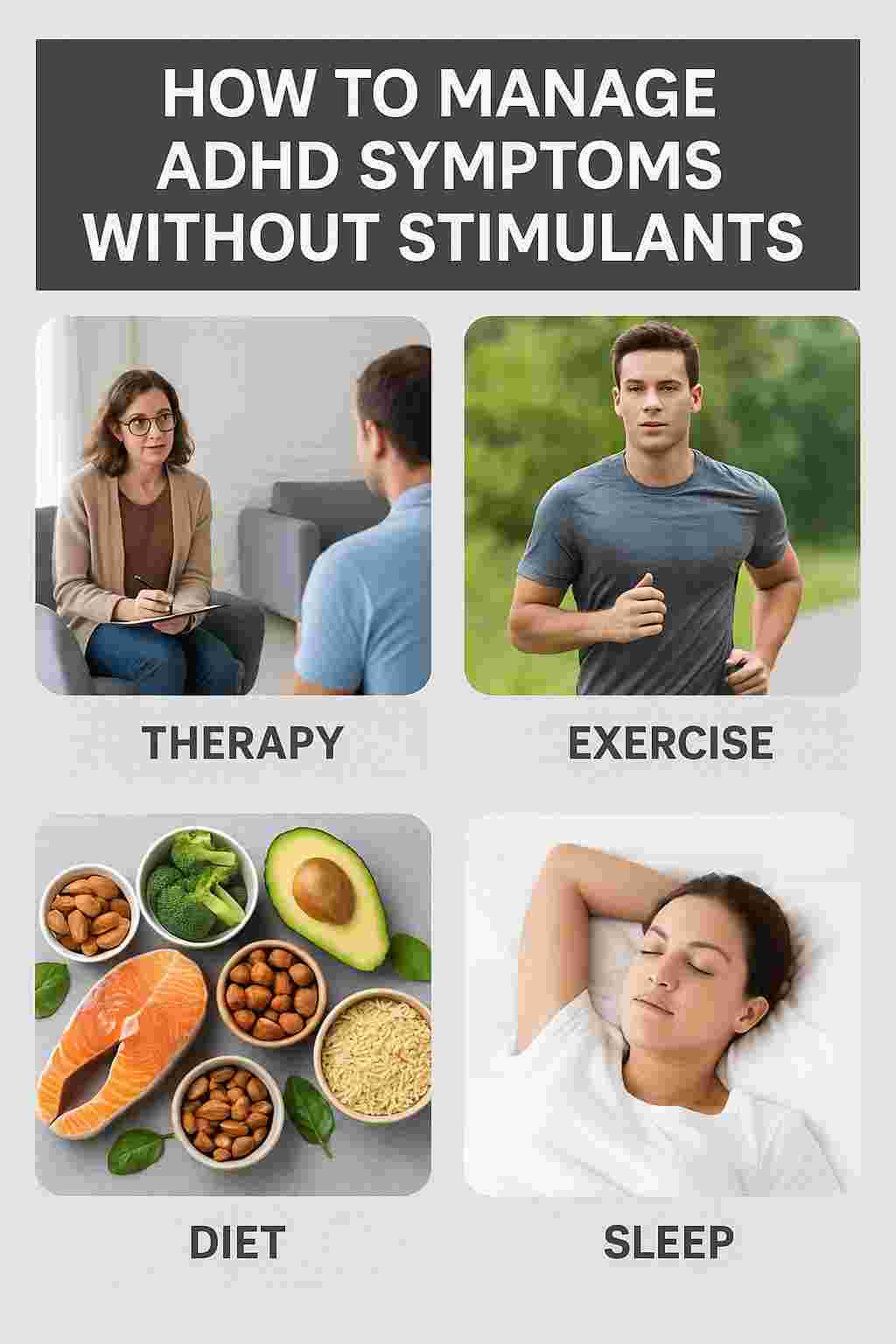


Discover practical, stimulant-free ways to manage ADHD, from nutrition and exercise to therapy, mindfulness, and non-stimulant medications.
How to Manage ADHD Symptoms Without Stimulants
When you live with ADHD, your brain constantly flips between chaos and focus often without warning. It’s like having 100 browser tabs open and not knowing which one is playing music. If that sounds familiar, you’re not alone. And you don’t necessarily need stimulants to find relief.
Medications like Adderall are often the first-line treatment for ADHD, but they’re not the only option. Some people can’t tolerate them due to side effects, health conditions, or personal preference. I’ve been there wanting to manage symptoms effectively without relying on stimulants. Let’s talk about how you can manage ADHD without them.
ADHD isn’t just about being distracted or hyper. It’s a neurological condition that affects executive functioning things like organization, emotional regulation, and impulse control.
People with ADHD often have lower dopamine levels. Stimulant medications increase dopamine, but they’re not the only way to support your brain. There are multiple evidence-based, stimulant-free tools you can use.
Your brain needs quality fuel to function. A balanced diet rich in protein, omega-3s, and complex carbs can noticeably improve focus and mood.
Some studies suggest that omega-3 supplements may help with attention. One rule I follow? Eat protein with every meal. It stabilizes blood sugar and supports neurotransmitters like dopamine.
If I had to choose one non-medication strategy that changed my ADHD experience, it would be exercise. Just 20 minutes of movement can increase dopamine, norepinephrine, and serotonin levels neurotransmitters that ADHD medications also target.
Whether it’s walking, yoga, or dancing around your kitchen, regular movement helps with focus, restlessness, and sleep.
While medication treats symptoms, therapy helps with the patterns behind them. Cognitive Behavioral Therapy (CBT) is especially effective for ADHD. It can help you break down overwhelming tasks, reduce negative self-talk, and build sustainable habits.
ADHD coaches aren’t therapists, but they help you stay accountable, organized, and goal-oriented without judgment.
Meditation might feel impossible with a racing brain, but it’s one of the best tools for building focus. Mindfulness is like strength training for your attention span. Apps like Headspace or Insight Timer can guide you through sessions tailored for ADHD brains.
Even five minutes a day can help you become more aware of your thoughts and prevent distractions from taking over.
“You can’t stop the waves, but you can learn to surf.” Jon Kabat-Zinn
Mindfulness won’t cure ADHD, but it helps you manage the waves more calmly and clearly.
Not all ADHD meds are stimulants. Non-stimulants like Strattera (atomoxetine) work by increasing norepinephrine instead of dopamine. They often take longer to work but may be better tolerated by those who experience stimulant side effects or anxiety.
If you’re deciding between options like Adderall vs. Strattera, talk with your doctor about what fits your health history and goals.
Managing ADHD is about consistency and creating systems. Here are a few lifestyle changes that helped me:
Living with ADHD doesn’t mean you’re broken it just means your brain works differently. Whether you choose therapy, lifestyle changes, coaching, or non-stimulant meds, managing ADHD without stimulants is possible and empowering.
Need support while exploring your options? Visit our addiction and mental health blog for real-world insights and guidance on your wellness journey.
